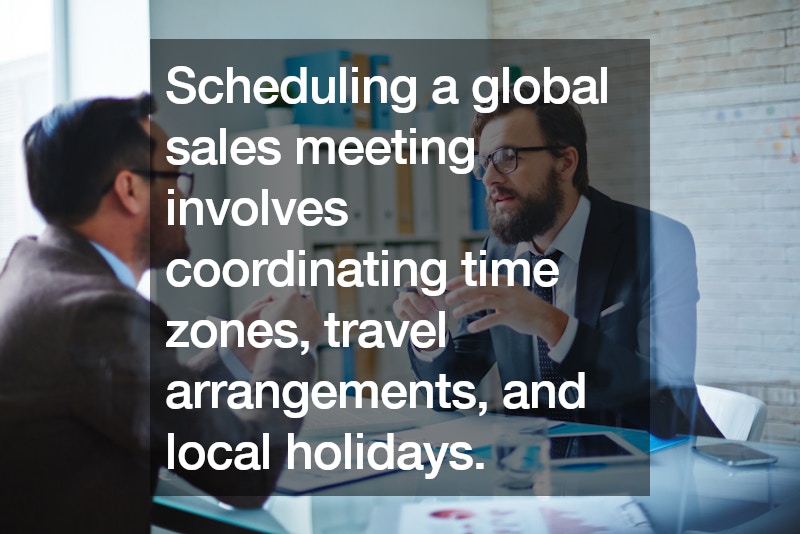
Planning a global sales meeting involves orchestrating a complex event that gathers sales teams from different regions to align on strategies, share insights, and build team cohesion. Given the diverse locations and cultures involved, meticulous planning is essential to ensure the meeting’s success. Here’s a comprehensive guide on how to plan a global sales meeting.
Define the Meeting Objectives
The first step in planning a global sales meeting is to clearly define its objectives. Are you launching a new product, discussing sales strategies, or providing training sessions? Establishing clear goals will guide the planning process and ensure that all activities and content are aligned with the desired outcomes.
Set a Budget
A detailed budget is crucial for managing the various expenses associated with a global sales meeting. Consider costs such as travel, accommodation, venue hire, catering, technology, and any external speakers or trainers. Having a clear budget helps in making informed decisions and avoiding overspending.
Choose the Right Location
Selecting an appropriate location is vital for a global sales meeting. The venue should be easily accessible for international attendees, have adequate facilities, and provide a conducive environment for both formal and informal interactions. Consider cities with major international airports and good transportation infrastructure to minimize travel complications.
Schedule and Logistics
Scheduling a global sales meeting involves coordinating time zones, travel arrangements, and local holidays. Choose dates that work well for the majority of participants and send invitations well in advance. Arrange for transportation from the airport to the hotel and venue, and consider hiring a travel coordinator to assist with travel plans and visa arrangements.
Plan the Agenda
A well-structured agenda is key to a successful global sales meeting. Include a mix of presentations, workshops, breakout sessions, and networking opportunities. Ensure there is a balance between information dissemination and interactive activities. Allow time for regional teams to present their achievements and challenges, fostering a sense of inclusivity and collaboration.
Engage and Prepare Speakers
Selecting and preparing speakers is critical. Choose a mix of internal leaders and external experts who can provide valuable insights. Provide speakers with clear guidelines on their topics and presentation formats. Conduct rehearsals to ensure that presentations are engaging and aligned with the meeting’s objectives.
Incorporate Technology
Utilize technology to enhance the meeting experience. Use a reliable event management platform for registration, agenda updates, and communication. Incorporate interactive tools such as live polls, Q&A sessions, and virtual breakout rooms to keep participants engaged. Ensure that all technical aspects, such as audio-visual equipment and internet connectivity, are thoroughly tested before the event.
Cultural Sensitivity and Inclusivity
A global sales meeting involves participants from diverse cultural backgrounds. Be mindful of cultural differences and ensure that the meeting environment is inclusive. Provide interpretation services if necessary, and consider dietary restrictions when planning meals. Creating a culturally sensitive atmosphere promotes mutual respect and enhances collaboration.
Networking Opportunities
Networking is a key component of any sales meeting. Plan social events, such as dinners, cocktail receptions, or team-building activities, to encourage informal interactions among participants. These events provide valuable opportunities for attendees to build relationships, share experiences, and foster a sense of camaraderie.
Follow-Up and Feedback
After the global sales meeting, follow up with participants to gather feedback and assess the event’s success. Send out surveys to understand what worked well and what could be improved. Share meeting outcomes, action items, and any relevant materials with the participants. Continuous improvement based on feedback ensures that future meetings are even more effective.
Planning a global sales meeting requires careful consideration of various elements, from defining objectives and setting budgets to choosing the right location and engaging speakers. By incorporating technology, fostering cultural sensitivity, and providing ample networking opportunities, you can create a successful and impactful event. Detailed planning and effective execution will not only align your sales team with the company’s strategic goals but also strengthen relationships and enhance team collaboration. A well-organized global sales meeting can drive performance, boost morale, and ultimately contribute to the company’s success.
.




